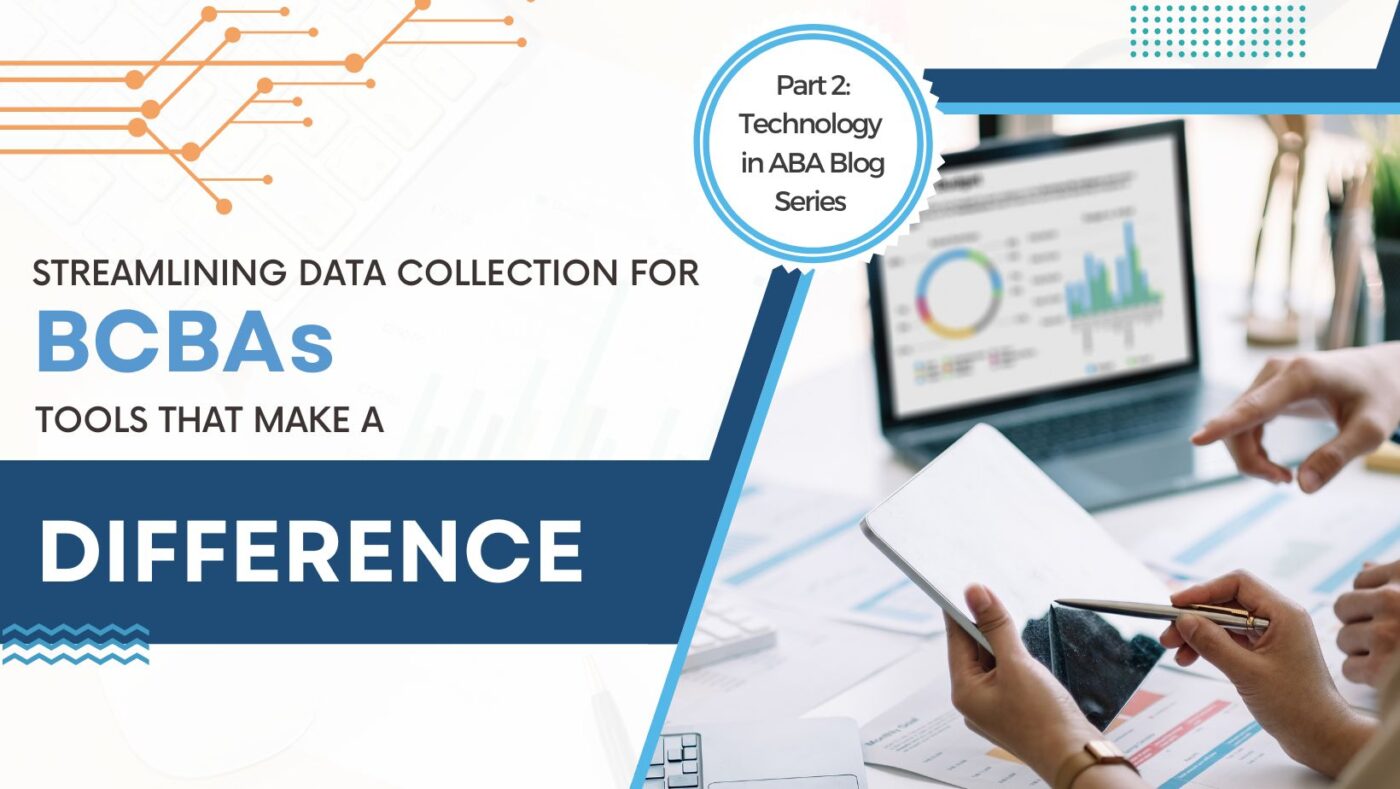Enhancing Workflow Efficiency with Digital Tools
In the fast-paced world of ABA, effective data collection and progress monitoring are vital for delivering high-quality care. As BCBAs face increasing demands for services and growing caseloads, traditional methods of data collection can hinder their ability to focus on clients. Fortunately, digital data collection systems and behavior-tracking apps are transforming how BCBAs operate, significantly improving workflow efficiency and ultimately benefiting clients.
The Shift to Digital Data Collection
Gone are the days of paper-based logs and manual data entry. Digital data collection systems allow BCBAs to record information in real time using tablets or smartphones, ensuring valuable data is captured accurately and promptly. These tools not only streamline documentation but also reduce the risk of human error.
Many of these systems come equipped with analytics tools that compile and analyze data automatically, enabling BCBAs to identify trends and make informed decisions quickly. Customizable dashboards visualize key performance indicators, providing immediate insights into client outcomes and therapy effectiveness. This capability empowers BCBAs to adapt intervention strategies in real time, ensuring that each client receives the most appropriate care.
Enhancing Client Engagement
Behavior-tracking apps play a critical role in promoting client engagement. Designed with user-friendly interfaces, these apps facilitate data sharing between BCBAs, Registered Behavior Technicians (RBTs), clients, and their families. When clients can visualize their progress, it fosters a sense of ownership over their learning journey. Parents benefit from real-time updates, allowing them to support their child’s development outside therapy sessions.
Additionally, features like reminders, prompts, and visual schedules are particularly useful for clients who thrive on structure. By integrating these elements into daily routines, BCBAs can enhance the overall effectiveness of their interventions.
Navigating Challenges
While digital tools offer numerous advantages, BCBAs must navigate challenges related to integration and compatibility among various platforms. Selecting tools that offer interoperability, and seamless integration can mitigate issues such as duplicate data entry, which consumes valuable time and increases the risk of inaccuracies in client records.
The Future of Data Collection in ABA
As technology continues to advance, the potential for enhancing data collection in ABA is vast. Innovations such as AI and machine learning could soon provide BCBAs with predictive analytics, helping them anticipate client needs based on historical data. This shift would allow for proactive interventions tailored to individual clients, ultimately improving efficiency and outcomes.
The integration of digital data collection systems and behavior-tracking apps is revolutionizing how BCBAs gather and analyze information. By streamlining workflows, these tools empower behavior analysts to focus on delivering the best possible care to their clients. As we embrace these advancements, we’re not just keeping pace with the demands of our field; we’re setting the stage for a future where technology and human expertise work hand-in-hand to improve outcomes in ABA therapy.
